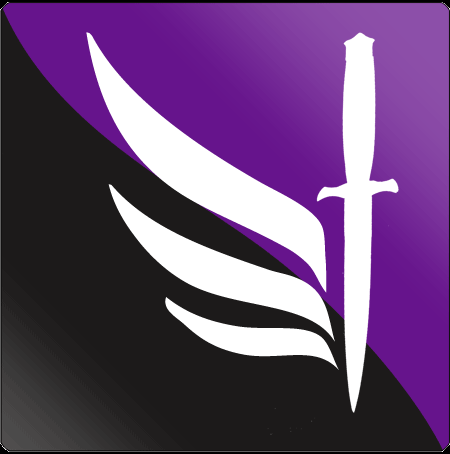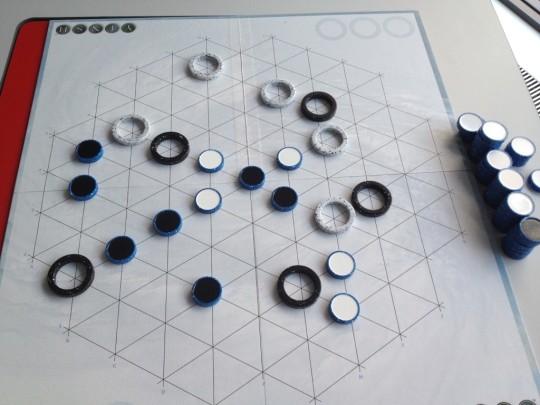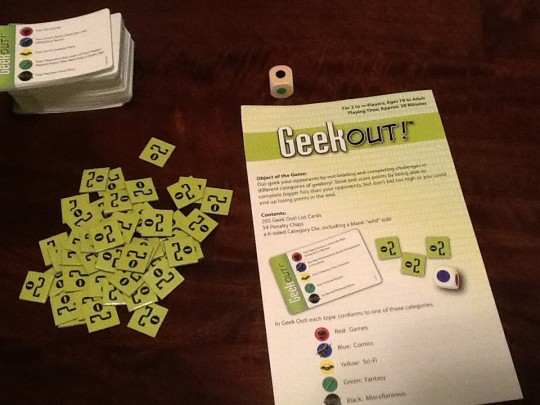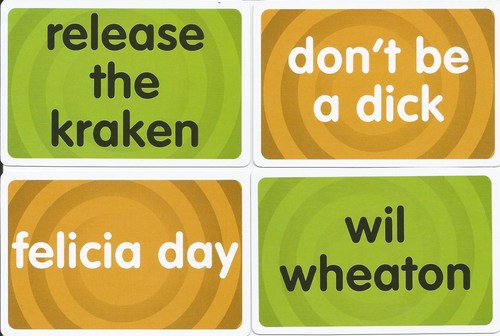I only played a few games at Tabletop Day 2015 so I’ll put them into one all-encompassing post.
Here they are:
YINSH
The Board Game Geek blurb explains this very well. Well, quite well. I added some important bits in brackets.
The players each start with 5 rings on the board. Every time a ring is moved (down a straight line in any direction), it leaves a marker (of your colour) behind. Markers are white on one side and black on the other.
When markers are jumped over by a ring they must be flipped, so their colour is constantly changing.
The players must try to form a row of 5 markers with their own colour face up. If a player succeeds in doing so, they remove one of their rings (and the five markers) as an indication that they have formed such a row.
The first player to remove 3 of their rings wins the game. In other words, each row you make brings you closer to victory-but also makes you weaker, because you have one fewer ring to play with. Very tricky!
I lost 3-1 very quickly, and I only got the 1 after my opponent pointed out the move 🙂
These 2 player abstract games like TZAAR, Mijnlieff and others I have played are great. I enjoyed them, but you need to play them a lot to become just an average player. That is especially true for these GIPF project ones which are very clever.
Sadly, 2 player opportunities are few and far between but I’ll keep giving them a go when I can.
Geek Out
I can name 3 reasons I like this game…
My mind has gone blank.
Geek Out! is a party game that can determine once and for all which player is the most knowledgeable about your favourite pop culture subjects!
You draw a card and roll a die. The colour of the die shows you which ‘question’ you need to answer.
The questions vary from category to category but can include “Name 4 characters from the Walking Dead” or “Name 6 characters from Wonderland” etc
Geek stuff.
Players have a chance to say they can name more. Once a player has claimed a number that no other player dare to challenge them, they go for it.
If they do it they get the card, if they fail they get a -2 token.
The winner is the first to a predetermined number of cards.
I ended the game on -2. It’s got that thing where you say, “I can name them” and immediately follow it up with a memory wipe.
It’s a nice party game, but I played it with some serious Manga/Anime/Comic Book/Sci-fi/Fantasy fans who destroyed me…
Not bad though.
Reverse Charades
Many people moving…
One person sat looking clueless.
Reverse Charades flips the charade standard of one person giving clues to a large group on its head by splitting the players (six or more) into two teams, then having all but one person on a team work together to get that one person to guess as many words as possible in sixty seconds. Each guessed word is worth one point; each word spoken or mouthed costs that team a point.
That’s all I need to say…
The main difference being that standard charades is very logical and methodical with a standard way of playing we all understand.
It’s a Film
It’s also a Book
5 Words
First Word
The
etc…
This is 2+ people flailing as quick as possible while the guesser looks on bemused.
It was a special Tabletop Day version so included lots of geek references but it was good crazy fun for 20 minutes.
Jesta ThaRogue




Leave a Reply